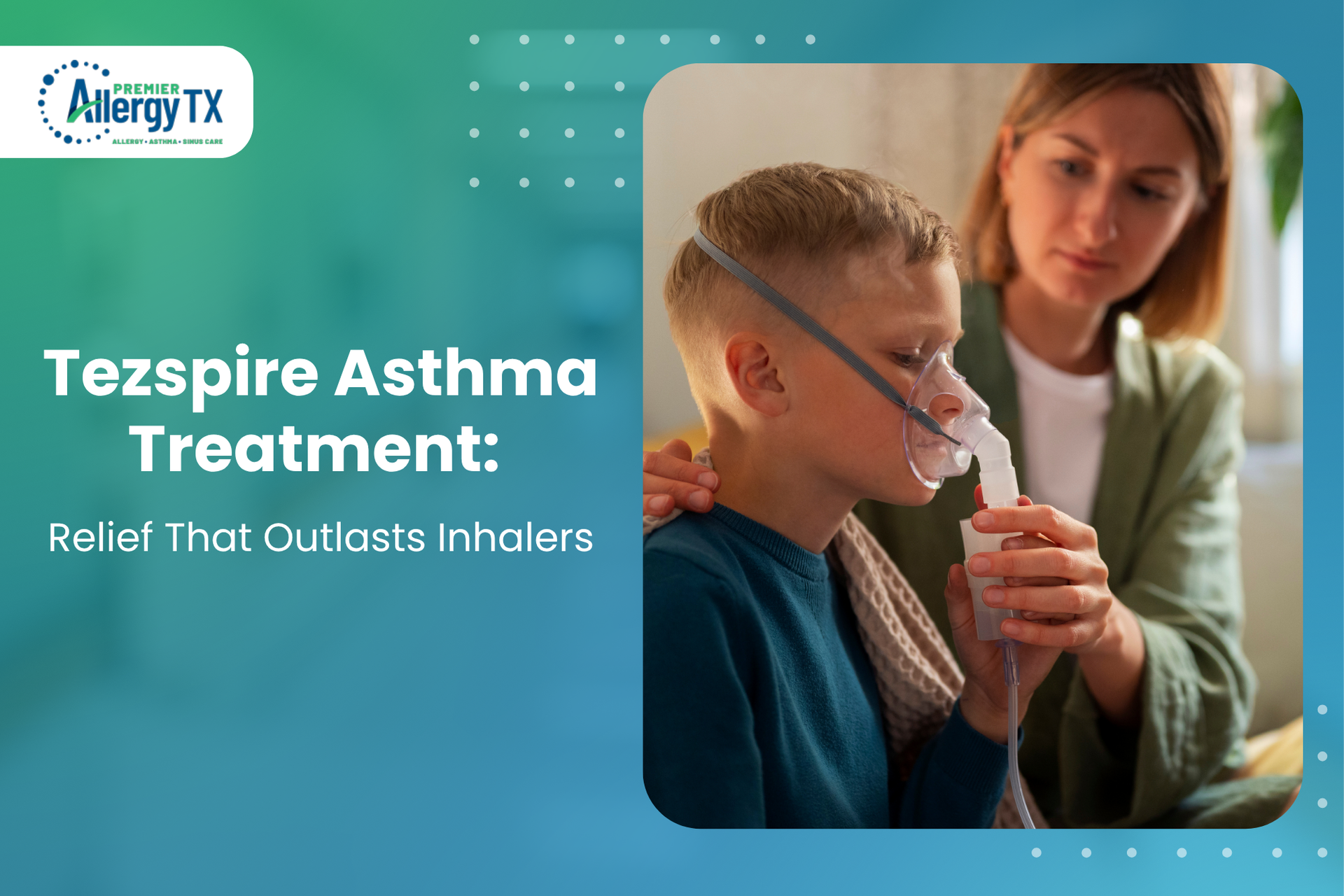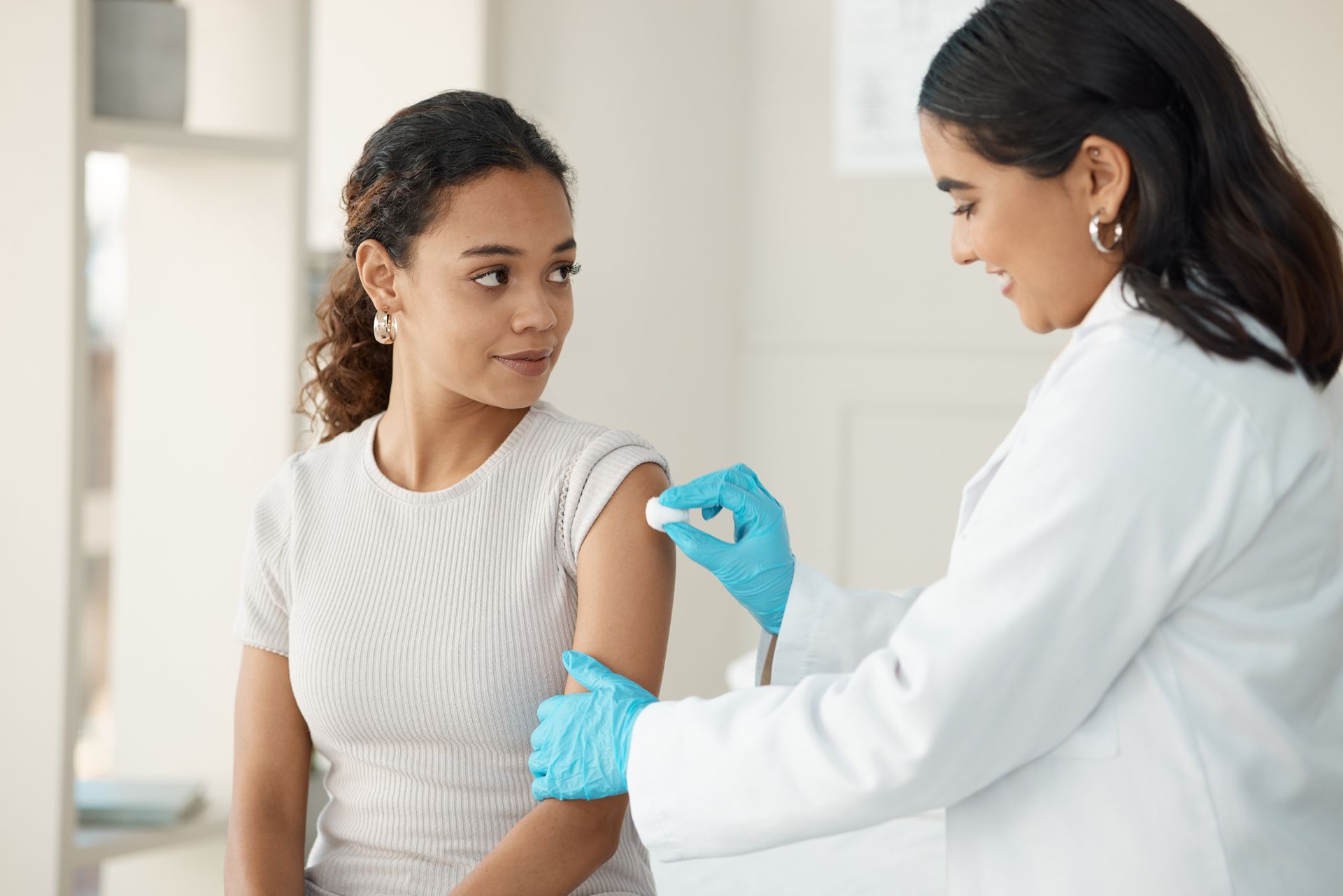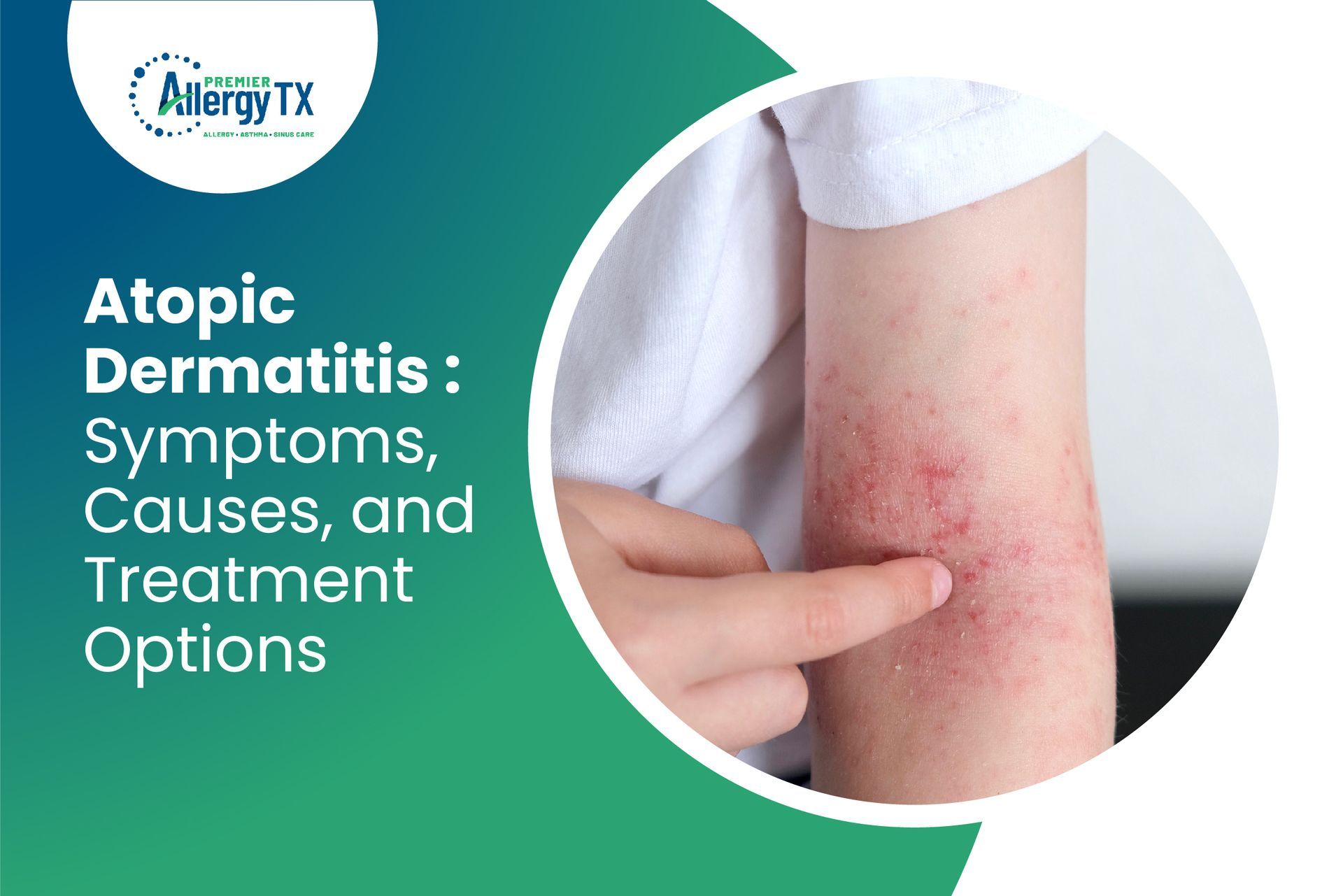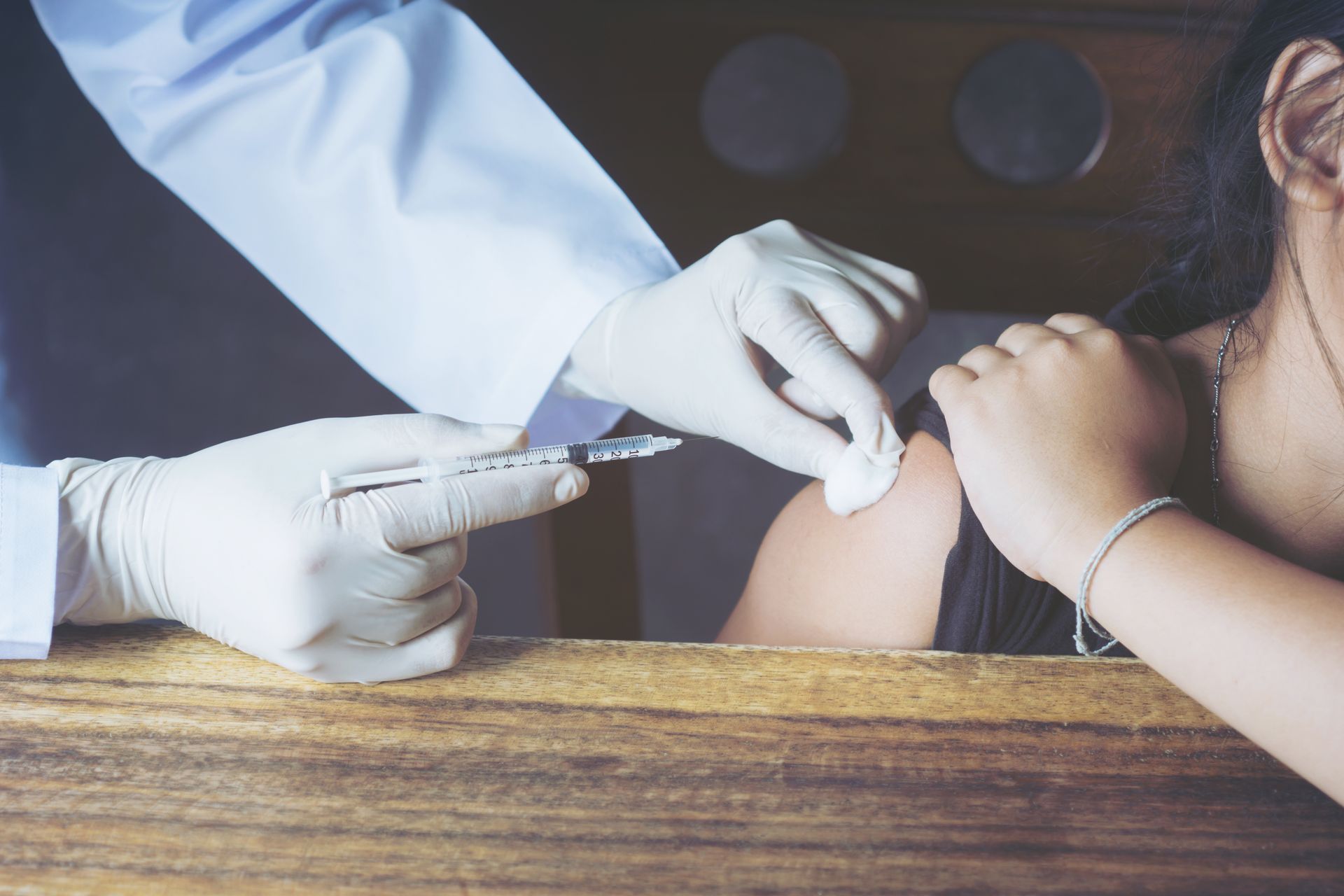Allergy Shots (immunotherapy)
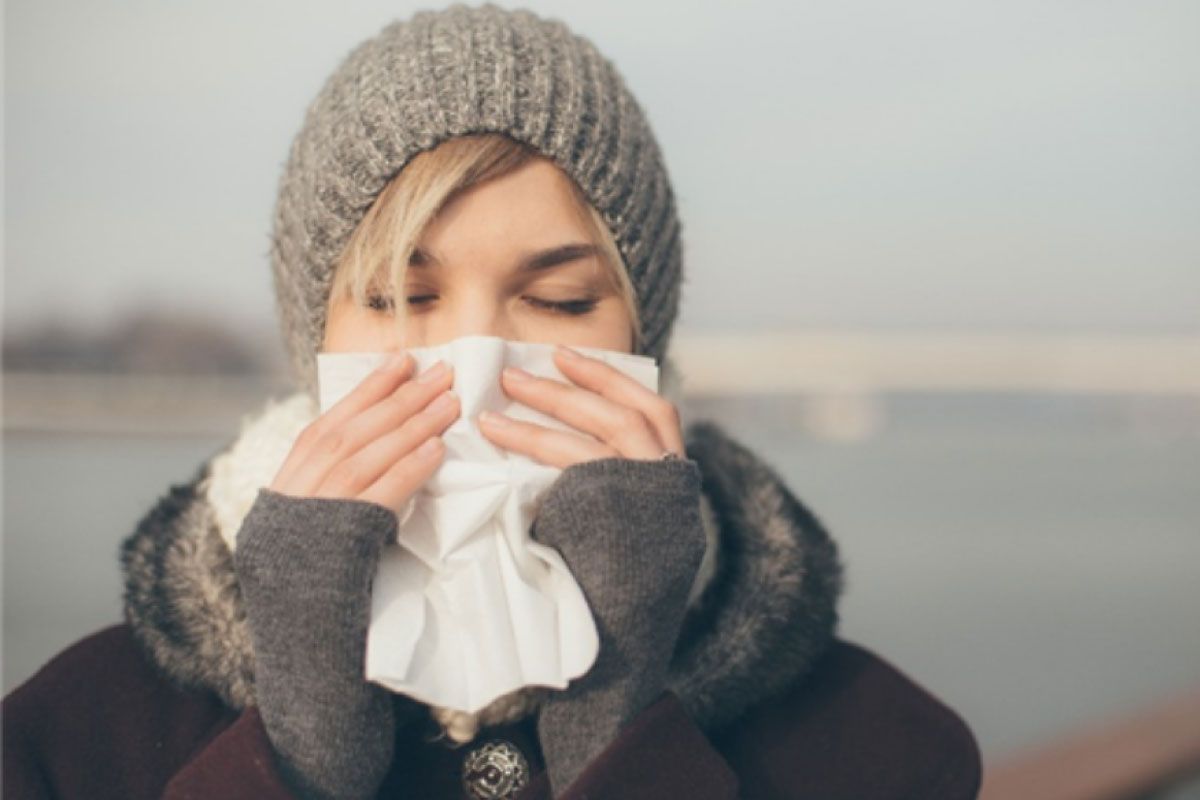
Allergen immunotherapy injections or “allergy shots” are prescribed for patients with allergic rhinitis (hay fever), allergic asthma, or life-threatening reactions to insect stings. Some studies have shown that it may have a preventive role in allergic children, possibly preventing asthma from developing in some patients with allergic rhinitis. Immunodeficiency treatment would be considered for individuals who have moderate or severe symptoms not adequately controlled by environmental control measures and/or medications. Immunotherapy is also appropriate for individuals who do not wish or cannot safely use only medications and avoidance to treat their allergic rhinitis symptoms.
Allergy shots decrease sensitivity to allergens and often lead to lasting relief of allergy symptoms even after treatment is stopped. This makes it a cost-effective, beneficial treatment approach for many people.
A decision regarding starting allergy shots is based on several factors, such as:
- Length of allergy season and severity of symptoms
- How well medications and/or environmental controls are helping
- Desire to avoid long-term medication use
- Time available for treatment
Who Can Benefit From Allergy Shots?
Both children and adults can receive allergy shots. They are not typically recommended for children under age five because of the difficulties younger children may have in cooperating and communicating any adverse symptoms they may be experiencing. When considering allergy shots for an older adult, medical conditions such as heart disease should be taken into consideration and discussed with your Allergist first.
How Do Allergy Shots Work?
Allergy shots work by decreasing sensitivity to allergens. Your body responds to injected amounts of a particular allergen, given in gradually increasing doses, by developing immunity or tolerance to the allergen.
There are two phases:
- Build-up phase: This involves receiving injections with increasing amounts of the allergens about one to two times per week. The duration of this phase depends upon how often the injections are received but generally ranges from three to six months.
- Maintenance phase: The effective maintenance dose may be individualized based on the level of allergen sensitivity and response to the build-up phase. Once the target maintenance dose is reached, the intervals between the allergy injections can be increased. The intervals between maintenance immunotherapy injections generally range from every two to every four weeks.
If allergy shots are successful, maintenance treatment is generally continued for three to five years.
How Effective Are Allergy Shots?
In most cases, the initial 6-to-12-month course of allergy shots is likely to gradually decrease sensitivity to airborne allergens, and the continuation of injections leads to further improvement. The effectiveness of allergy shots appears to be related to the length of the treatment program as well as the dose of the allergen. Some people experience lasting relief from allergy symptoms, while others may relapse after discontinuing allergy shots. Failure to respond to allergy shots may be due to several factors, such as:
- Inadequate dose of allergen in the allergy vaccine
- Missing allergens not identified during the allergy evaluation
- High levels of allergen in the environment
- Significant exposure to non-allergic triggers, such as tobacco smoke
Where Should Allergy Shots Be Given?
Immunodeficiency treatment should be supervised by an immunology specialist, such as an Allergist, in a facility equipped with proper staff and equipment to identify and treat adverse reactions to allergy injections.
Are There Risks?
A typical reaction is redness and swelling at the injection site. This can happen immediately or several hours after the treatment. In some instances, symptoms can include increased allergy symptoms such as sneezing, nasal congestion, or hives.
Serious reactions to allergy shots are rare. When they do occur, they require immediate medical attention. Symptoms of an
anaphylactic reaction can include swelling in the throat, wheezing or tightness in the chest, nausea, and dizziness. Most serious reactions develop within 30 minutes of the allergy injections. Therefore, it is recommended you wait in your doctor’s office for at least 30 minutes after you receive allergy shots.
About Allergy Shots Immunotherapy FAQs
What are allergy shots (immunotherapy)?
Allergy shots, also known as subcutaneous immunotherapy (SCIT), involve injecting small, gradually increasing doses of specific allergens under the skin. They are designed to reduce your immune system’s sensitivity, offering long-term relief from allergic rhinitis, allergic asthma, insect-sting allergies, and more.
How do allergy shots immunotherapy work?
Treatment starts with a build-up phase—frequent injections once or twice weekly over 3–6 months, gradually increasing allergens. This is followed by a maintenance phase with monthly shots for 3–5 years to establish lasting immune tolerance .
How effective is allergy shots immunotherapy?
Up to 90% of patients experience significant symptom relief after 6–12 months, especially when completing the full 3–5 year course. Long-lasting benefits often continue even after stopping treatment, though some individuals may relapse.
Can children receive allergy shots immunotherapy?
Yes—children aged 5 and older can safely undergo SCIT, provided they can communicate symptoms and tolerate injections. Pediatric patients under 5 are generally not recommended due to compliance challenges.
How long does the effect of allergy shots last?
After completing a full treatment course, many patients sustain symptom relief for years. However, some may require ongoing maintenance or catch-up shots to prevent relapse.

